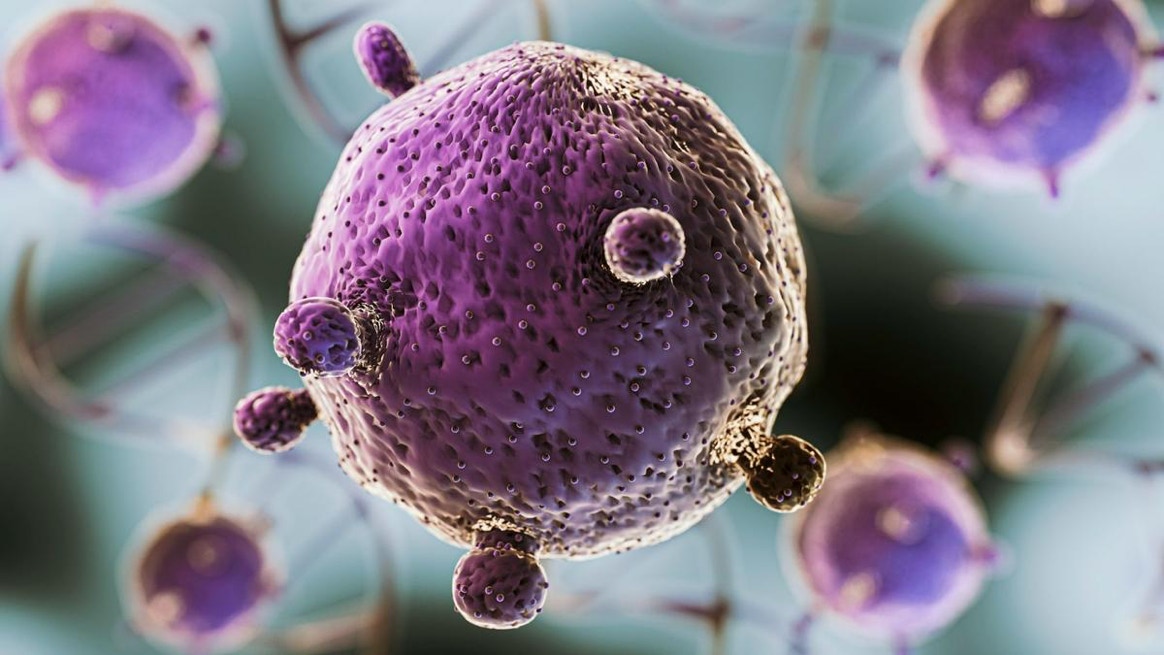





SCIENCE
Researchers develop new method to boost immune cells for fighting cancer
Virginia Tech reseachers pioneer cancer immunotherapy, localizing cytokines in tumors for enhanced treatment.
Representational image of microorganisms.
Rong Tong and Wenjun “Rebecca” Cai, professors at Virginia Tech, have teamed up to explore a new cancer treatment.
Their method relies heavily on cytokines, small proteins that act like messengers among the body’s immune cells. These molecules play a vital role in coordinating immune responses. Tong and Cai’s research highlights the potential of utilizing cytokines to enhance the effectiveness of cancer treatment strategies.
Revamped cancer treatment promises immunotherapy advancement
In the US, over 600,000 people succumbed to cancer last year, as reported by the American Cancer Society. The relentless quest to comprehend this disease has propelled medical advancements, aiming for treatments that are both minimally invasive and profoundly impactful.
One rising contender is immunotherapy, which taps into the body’s immune system to combat cancer cells.
“Cytokines are potent and highly effective at stimulating the immune cells to eliminate cancer cells. The problem is they’re so potent that if they roam freely throughout the body, they’ll activate every immune cell they encounter, which can cause an overactive immune response and potentially fatal side effects,” Tong explained in a statement.
Thus, Tong and Cai’s method aims to utilize cytokine proteins for potential immunotherapy. Unlike past approaches, their technique guarantees prolonged localization of immune cell-stimulating cytokines within tumors, maintaining the cytokines’ structure and reactivity levels.
A safer alternative to chemotherapy
Conventional cancer therapies like chemotherapy lack specificity, targeting both healthy and cancerous cells indiscriminately. As a result, patients often endure side effects such as hair loss and fatigue due to the assault on their entire body’s cells.
Stimulating the body’s immune response against tumors presents a hopeful alternative to treating cancer. While delivering cytokines can activate immune cells within tumors, excessive stimulation of healthy cells may result in severe side effects.
According to Tong, although scientists previously determined that cytokines can help activate and fight against tumors, they didn’t know how to localize them inside the tumor while not exposing toxicity to the rest of the body.
“Chemical engineers can look at this from an engineering approach and use their knowledge to help refine and elevate the effectiveness of the cytokines so they can work inside the body effectively,” he said.
Tong and his students leveraged their expertise to engineer specialized particles of varying sizes that facilitate precise drug delivery. These microparticles are tailored to remain localized within the tumor following administration into the body. Meanwhile, Cai and her students focused on assessing the surface characteristics of these particles.
Collaborative efforts can transform cancer treatment research
Cai also stressed the need for expertise across different engineering fields in cancer treatment research.
“I view this project as a perfect marriage between chemical engineering and materials science. The former focuses on the synthesis and drug delivery part, the latter on applying advanced materials characterization. This collaboration not only accelerates immunotherapy research but also has the ability to transform cancer treatment,” she noted.
For Tong, the motivation is amplified by the drive to develop novel technologies in the field.
“The whole class of drugs that are employed to jump-start the immune system to fight cancer cells has largely not yet succeeded. Our goal is to create novel solutions that allow researchers to test these drugs with existing FDA-approved therapeutics, ensuring both safety and enhanced efficacy,” he emphasized.
Details of the research have been published in the journalScience Advances.
